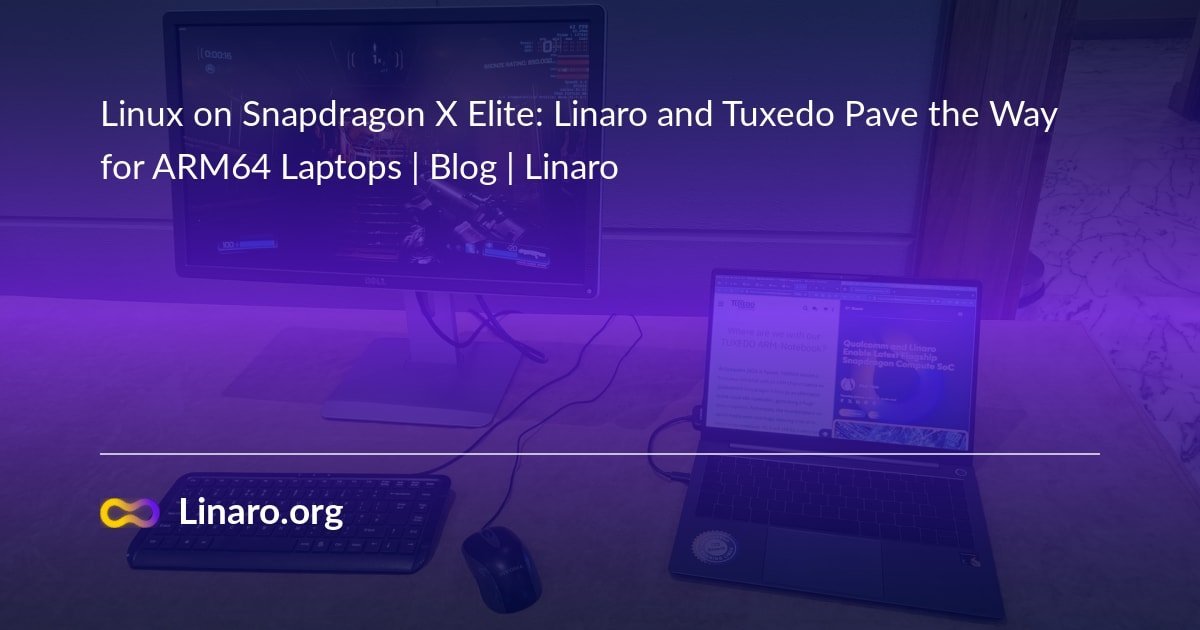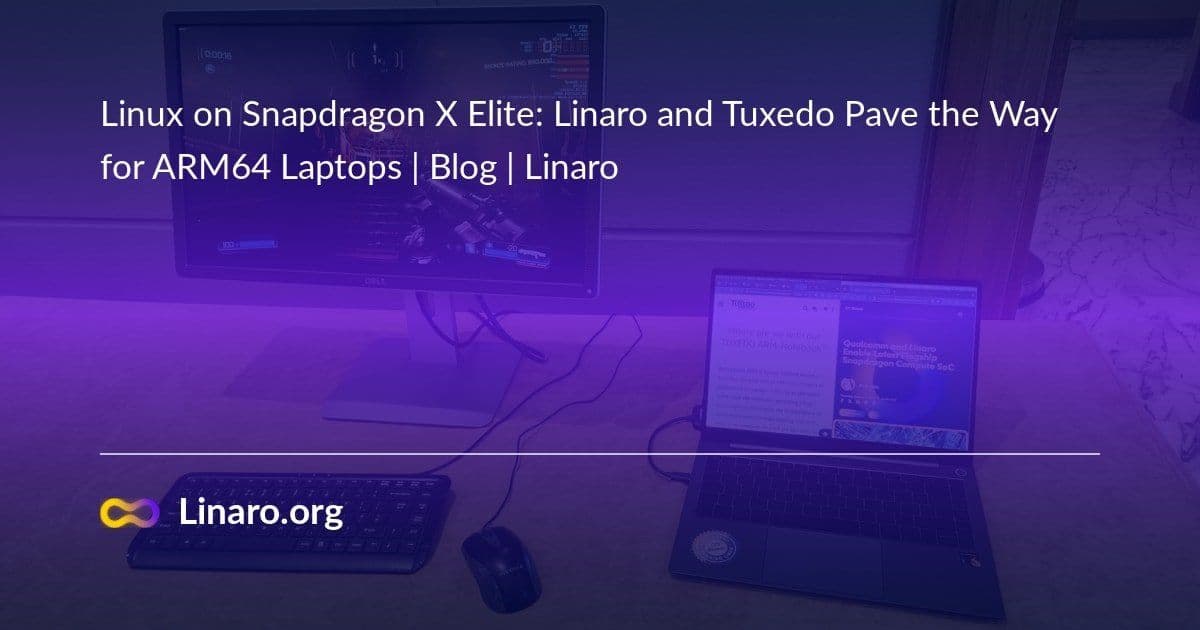A collaborative effort between Linaro, Qualcomm, and TUXEDO Computers has yielded a functional Linux prototype for Snapdragon X Elite laptops, signaling a major leap for ARM64 computing. With kernel 6.15 support for devices like Dell XPS 13 and Lenovo ThinkPads, and Ubuntu/Fedora distros in development, this could finally bring viable Linux options to high-performance ARM laptops.
The ARM Linux Laptop Dream Inches Closer to Reality

At Linaro Connect 2025, engineers unveiled a milestone once thought distant: a fully functional, off-the-shelf ARM64 Linux laptop powered by Qualcomm's Snapdragon X Elite SoC. This prototype—developed through intense collaboration between Linaro, Qualcomm, and German Linux vendor TUXEDO Computers—represents the most significant progress to date in bringing desktop Linux to high-performance ARM hardware. Unlike Apple's locked-down ecosystem or Microsoft's Windows-on-Arm focus, this initiative opens the door for truly open, energy-efficient alternatives to x86 dominance.
The Long Road to Snapdragon Linux Compatibility
While Qualcomm's Snapdragon X Elite processors have shipped in Windows laptops since 2024, Linux support remained fragmented. As with Apple Silicon, vendors provided no native out-of-the-box Linux compatibility—until now. Over the past year, Linaro engineers spearheaded kernel-level integrations to bridge critical gaps:
- Hardware Enablement: GPU acceleration, USB-C DisplayPort, thermal management
- Core Functionality: Audio, Wi-Fi/Bluetooth, suspend/resume reliability
- Peripheral Support: Software cameras and external display handling
These efforts culminated in Linux Kernel 6.15 supporting commercial devices including:
- Lenovo Yoga 7x & ThinkPad T14s Gen 6
- Dell XPS 13
- Asus Vivobook S15
- HP Omnibook x14
- Microsoft Surface 13/15
TUXEDO's Bet on ARM Linux
German Linux specialist TUXEDO Computers is translating this groundwork into consumer reality. The company provided prototypes to Linaro for joint development, aiming to launch the first Snapdragon X Elite laptop with pre-installed Linux—a critical threshold for mainstream adoption. During demonstrations, the TUXEDO Elite 14 Gen1 handled multitasking while running x86-64 games via FEX-EMU emulation, all powered through a single USB-C hub.
"Many customers are eagerly awaiting an alternative to x86 notebooks," said TUXEDO CEO Herbert Feiler. "The Snapdragon architecture makes this possible with Linux, offering comparable performance alongside reduced energy consumption. Users can look forward to long battery life and solid performance in a lightweight device."
The Path Ahead
Though still requiring manual setup, the prototype proves daily-driver viability. Canonical is integrating support into Ubuntu 25.04, while Fedora works on similar optimizations. Linaro’s next goals include refining the out-of-box experience for Debian/Fedora and closing performance gaps with Windows counterparts. For developers and enterprises, this collaboration signals a future where ARM laptops offer genuine Linux parity—combining x86-tier performance with ARM's power efficiency in an open ecosystem. As Linux distributions finalize support, 2025 could mark the year ARM escapes mobile confines to challenge Intel and AMD on the desktop front.
Source: Linaro Blog

Comments
Please log in or register to join the discussion